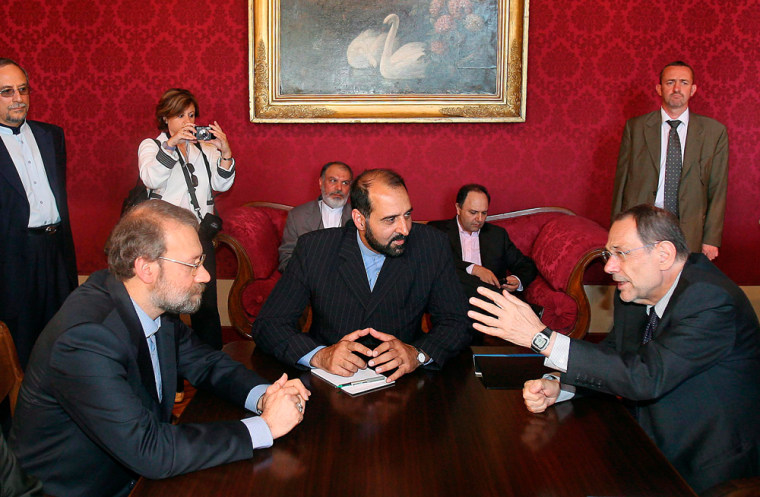A senior Iranian official warned Saturday that further U.N. sanctions over Tehran’s contentious nuclear program could derail ongoing negotiations toward a settlement.
Ali Larijani, Iran’s top nuclear envoy, said after his latest round of talks with European Union foreign policy chief Javier Solana that the international community should seek to keep negotiations alive, and chided nations that sought to punish the Islamic republic.
It would be natural for some to try to destroy the negotiation process, Larijani said, referring to the prospect of new U.N. Security Council sanctions.
However, “for (most) countries, the prevalence of tranquility would be more important,” he said through an interpreter at a news conference after the talks in Lisbon, Portugal.
Solana described the talks as “constructive,” and said the two planned to meet again in three weeks.
Since December, the council has imposed two sets of sanctions for Iran’s refusal to freeze both its uranium enrichment and construction of a heavy-water reactor for producing plutonium. It also demands that Iran end its stonewalling of the International Atomic Energy Agency, or IAEA.
Both enriched uranium and plutonium can be used for the fissile core of nuclear warheads, although Iran insists its nuclear program is solely for the peaceful purpose of producing energy.
On Friday, the IAEA said Iran had agreed to provide answers on past suspicious nuclear activities within two months, a sign that Tehran was ready to make concessions in order to weaken international pressure against it.
But Larijani, speaking after meeting IAEA chief Mohamed ElBaradei at the agency’s Vienna headquarters on Friday, suggested the offer was conditional on reaching a “political understanding with Mr. Solana” on Saturday.
That was apparent shorthand for a larger deal that would allow for the start of talks between Iran and the five permanent Security Council members and Germany, without the present precondition of a total enrichment freeze.
Larijani reiterated in Lisbon that he intended to address outstanding issues with the IAEA, but provided no details.
While the key issue remains enrichment, any move by Tehran to share sensitive information with the IAEA could increase good will and feed sentiment for a compromise that might allow it to retain some elements of its enrichment program.
